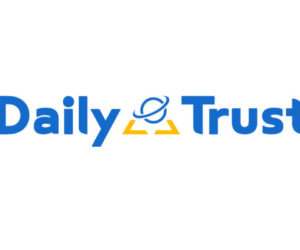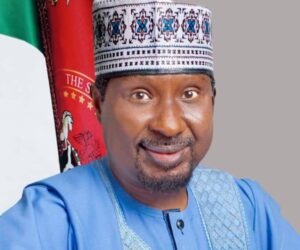In Nigeria’s bustling cities and rural communities, vehicles serve as lifelines connecting families, businesses, and opportunities. Yet many drivers unknowingly drain their wallets by neglecting routine vehicle maintenance, mistakenly believing they’re saving money by skipping regular service appointments. This false economy often leads to catastrophic breakdowns, expensive repairs, and premature vehicle replacement – costs that far exceed the price of preventive care.
Understanding the true financial impact of vehicle neglect reveals why smart drivers prioritize maintenance as an investment rather than an expense. From Lagos traffic jams to Abuja’s expanding suburbs, the principles of automotive care remain constant: prevention costs less than cure.
SPONSOR AD
The Mathematics of Maintenance vs. Neglect
When examining vehicle ownership costs, the numbers tell a compelling story. A typical oil change might cost between ₦8,000 to ₦15,000, depending on your vehicle type and oil quality. However, engine replacement due to oil neglect can cost anywhere from ₦500,000 to ₦2,000,000 or more. This stark contrast illustrates why regular maintenance represents sound financial planning.
Consider brake maintenance as another example. Replacing brake pads costs approximately ₦25,000 to ₦50,000, while ignoring worn pads can lead to rotor damage, requiring replacement costs of ₦100,000 to ₦200,000. The mathematics clearly favor proactive maintenance over reactive repairs.
Transmission service provides perhaps the most dramatic cost comparison. Regular transmission fluid changes cost around ₦15,000 to ₦25,000, but transmission replacement can exceed ₦1,500,000. These examples demonstrate how small, regular investments prevent massive financial setbacks.
Engine Health: The Heart of Vehicle Longevity
The engine represents your vehicle’s most expensive component, making its care paramount to financial prudence. Regular oil changes, air filter replacements, and cooling system maintenance protect this vital investment from premature failure.
Oil serves as your engine’s lifeblood, lubricating moving parts and removing harmful contaminants. In Nigeria’s dusty conditions and stop-and-go traffic, oil degrades faster than in ideal conditions. Fresh oil maintains proper viscosity, ensuring adequate lubrication and heat dissipation. Neglected oil becomes thick and contaminated, causing increased friction, overheating, and eventual engine seizure.
Air filters protect engines from dust and debris common on Nigerian roads. Clogged filters reduce airflow, forcing engines to work harder and consume more fuel. Clean filters improve fuel efficiency while protecting internal components from abrasive particles that cause premature wear.
Cooling systems face particular challenges in Nigeria’s climate. Regular coolant changes prevent corrosion and maintain optimal operating temperatures. Overheating damages cylinder heads, warps engine blocks, and destroys gaskets – repairs that often exceed the vehicle’s value.
Transmission Care: Protecting Your Investment
Automatic and manual transmissions require specific maintenance to function reliably. Transmission fluid lubricates gears, provides hydraulic pressure, and dissipates heat generated during operation. Like engine oil, transmission fluid degrades over time, losing its protective properties.
Regular transmission service includes fluid replacement, filter changes, and system inspections. This maintenance prevents costly internal damage and ensures smooth operation. Neglected transmissions develop harsh shifting, slipping, and eventual failure requiring complete replacement or extensive rebuilding.
Manual transmissions, while generally more robust, still require periodic clutch adjustments and fluid changes. Proper maintenance extends clutch life and prevents transmission damage from worn components.
Brake System Maintenance: Safety and Savings
Brake systems demand regular attention for both safety and financial reasons. Brake pads wear gradually through normal use, but ignoring wear indicators leads to metal-on-metal contact that damages rotors and drums.
Regular brake inspections identify wear patterns, fluid leaks, and component deterioration before they become safety hazards or expensive repairs. Brake fluid absorbs moisture over time, reducing effectiveness and causing internal corrosion. Periodic fluid replacement maintains braking performance and prevents costly component replacement.
Proper brake maintenance includes pad replacement, rotor resurfacing or replacement when necessary, and brake fluid changes. These services cost significantly less than emergency repairs following brake failure or extensive rotor damage.
Tire Care: Maximizing Performance and Value
Tires represent a substantial investment that proper maintenance can extend significantly. Regular rotation, proper inflation, and alignment checks maximize tire life while improving fuel efficiency and vehicle handling.
Under-inflated tires wear unevenly and increase fuel consumption, while over-inflation reduces contact area and accelerates center wear. Proper pressure maintains optimal performance and extends tire life. Regular rotation ensures even wear patterns, maximizing the investment in each tire.
Wheel alignment affects tire wear, fuel efficiency, and vehicle handling. Misaligned wheels cause rapid, uneven tire wear and increased fuel consumption. Professional alignment services cost less than premature tire replacement and improve driving comfort.
Fuel System Maintenance: Efficiency and Performance
Modern vehicles rely on clean fuel systems for optimal performance and efficiency. Fuel filters remove contaminants that could damage injection systems or carburetors. Regular filter replacement prevents fuel system problems and maintains engine performance.
Fuel injector cleaning removes deposits that affect spray patterns and fuel delivery. Clean injectors improve fuel efficiency, reduce emissions, and maintain smooth engine operation. This maintenance prevents costly injector replacement and engine performance problems.
Electrical System Care: Preventing Unexpected Failures
Vehicle electrical systems have become increasingly complex, making proper maintenance crucial for reliability. Battery maintenance includes terminal cleaning, voltage testing, and replacement when necessary. A failing battery can damage alternators and other electrical components.
Alternator and starter maintenance prevents roadside breakdowns and expensive emergency repairs. Regular electrical system inspections identify potential problems before they cause complete failure and costly towing situations.
Creating a Maintenance Schedule
Successful vehicle maintenance requires systematic scheduling based on manufacturer recommendations and driving conditions. Nigerian drivers should consider factors like dusty conditions, stop-and-go traffic, and climate when determining service intervals.
Many vehicle owners benefit from professional guidance when establishing maintenance schedules. Whether you need routine service or major repairs, it’s important to schedule auto service at Corsicana service center or similar facilities that understand your vehicle’s specific needs and local driving conditions.
The Long-Term Financial Impact
Regular maintenance extends vehicle life, maintains resale value, and prevents unexpected breakdowns. Well-maintained vehicles command higher resale prices and provide reliable transportation for years beyond neglected counterparts.
Consider the total cost of ownership when evaluating maintenance expenses. A vehicle that receives proper care might serve reliably for 200,000 kilometers or more, while neglected vehicles often require major repairs or replacement at 100,000 kilometers or less.
Conclusion
The choice between regular maintenance and reactive repairs ultimately determines your vehicle’s reliability, safety, and total cost of ownership. While maintenance requires ongoing investment, the alternative – dealing with major breakdowns, expensive repairs, and premature replacement – costs significantly more.
Smart vehicle owners recognize maintenance as insurance against catastrophic failures and unexpected expenses. By investing in regular service, you protect your transportation investment while ensuring reliable, safe operation for years to come. The mathematics clearly favor prevention over cure, making regular maintenance one of the wisest investments any vehicle owner can make.
Remember that every kilometer driven without proper maintenance increases the risk of expensive failures. Start today by establishing a comprehensive maintenance schedule that protects your investment and keeps you moving safely down Nigeria’s roads.








